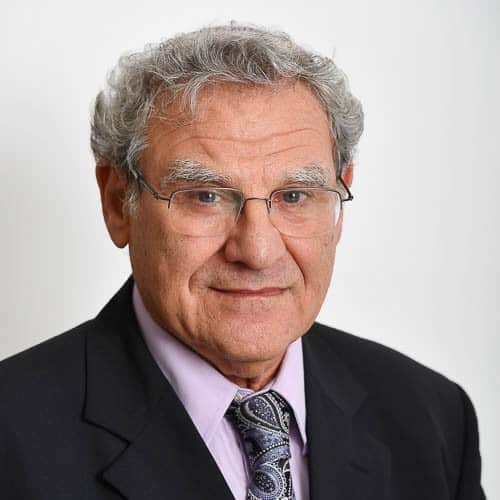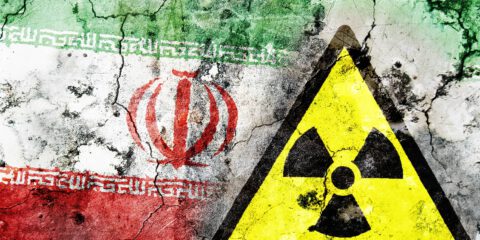From his rejection of Obama-era political correctness to his family make-up, Trump has charmed Israelis.
Israelis follow US presidential elections with extreme interest. American sports also attract their attention, as well as American TV series. A summer 2020 Pew global survey shows that Israel (together with the Philippines) is the most pro-American country in the world, with 83% of the population having warm feelings toward the US.
Moreover, most Israelis like President Donald Trump. Recent polls show that a majority of Israelis would prefer an electoral victory by the Republican incumbent in Tuesday’s election: 54% of Israelis favor Trump, compared with 21% who favor the Democratic challenger Joe Biden, while the other 25% said they did not know. Among right-wingers, 77% prefer Trump, compared with 7% who back Biden; left-wingers back Biden 45-22%.
In comparison, just before the November 2016 elections, Israelis favored Hillary Clinton over Donald Trump (41% to 31%). Obviously, in Israeli conservative circles, support was higher for Trump. Hillary benefited from her association with her husband, former president Bill Clinton, who was perceived a great friend of Israel.
After four years, Trump’s popularity in Israel peaked. For most Israelis, no other American administration can claim to be more supportive of Israel than Trump’s.
After many American presidential candidates ignored their promise to move the US Embassy to Jerusalem after taking office, it was Trump who delivered in May 2018. This was a memorable foreign-policy act that moved most Israelis who are adamant in their attachment to their 3,000-year-old capital city.
Israelis cannot understand why countries of the world refuse accept Israel’s choice of Jerusalem as their capital and place their embassies in western Jerusalem – that is not disputed land.
Trump also recognized Israel’s sovereignty over the Golan Heights.
Moreover, on issues that are very important to Israel – Iran and the Palestinians – there was a much greater convergence of views between Jerusalem and Washington than before.
Prime Minister Benjamin Netanyahu fought tooth and nail against the nuclear agreement negotiated with Iran by the administration of Trump’s predecessor Barack Obama. During the 2016 campaign, Trump slammed it as “one of the dumbest deals ever,” being very apprehensive of Iranian intentions. His administration installed a policy of “maximum economic pressure” on Iran and withdrew from the Iran deal in May 2018.
In contrast to the Obama obsession with Jewish settlements in Judea and Samaria, the Trump administration recognized their legality. Trump and his people, by contrast, were more relaxed on the Israeli-Palestinian issue, understanding correctly that it is hardly the most important problem in the nowadays-chaotic Middle East.
The peace plan presented by the Trump administration in January 2020, the “deal of the century,” was the best peace proposal Jerusalem ever received from Washington.
Trump’s positions on certain issues that draw tremendous criticism at home and abroad are less problematic for Israelis. For example, the idea of building a wall along the US-Mexican border to stop illegal immigration is viewed in Israel as the sovereign right of a nation to prevent undesirable elements entering its territory. Israel has built walls and fences to stop the infiltration of terrorists and illegal immigrants.
Sophisticated fences are export items of Israel’s military industries. Israeli high technology has been developed to enhance the effectiveness of such barriers.
Trump’s diatribes against Muslims are unseemly, but Israelis can understand where he is coming from, since they have been subject to Muslim terrorism and Arab state aggression for 100 years. The political correctness of Obama’s years – when he refused even to acknowledge radical Islam as the source for most of the terrorism in the world – infuriated Israelis.
Obama estranged Israelis by not distinguishing between Israeli building in Jerusalem and the West Bank. He often dished out “tough love” – as he called it – to Israel. Indeed, after eight years of tense relations with the Obama administration, most Israelis were relieved to see finally a friend in the White House.
Israelis are known for their tendency to be very direct (dugri in Israeli slang). Thus Trump’s courage to call a spade a spade is appreciated in Israel, even if some of his statements border on vulgarity. It is refreshing to the Israeli ear to hear an American presidential candidate not beating around the bush, but rather addressing issues without the constraints of liberal political correctness. This quality has earned Trump some popularity in Israel.
We should also remember that since the late 1960s, Israelis have often preferred Republican presidents. Yitzhak Rabin, who served as Israel’s ambassador to Washington from 1968-73, openly supported the Republican presidential candidate Richard Nixon. Similarly, Israeli preferences for Mitt Romney over Obama were abundantly clear.
In comparison to Europeans and many current American Democrats, Israelis are nationalist and conservative. The conservative Israeli Likud party has won almost every election since 1977.
Israelis followed the decline of American international fortunes during the Obama years with alarm. It frightens them to see America so weakened. Thus a president who wants to make his country “great again” by increasing defense spending and standing tall against America’s enemies abroad (Iran and China) strikes a responsive chord with Israelis.
Finally, Trump’s family biography enchants Israelis. His daughter converted to Judaism and belongs to an Orthodox community. Trump has Jewish grandchildren he is proud of. His Jewish son-in-law is an important adviser.
Living in New York may have sensitized him to the sensibilities of the Jewish community. Moreover, he always has expressed strong support for the Jewish state.
Israelis hope the pollsters in the US predicting a Biden victory in Tuesday’s election will prove wrong once more.
Published in Asia Times, 02.11.2020
JISS Policy Papers are published through the generosity of the Greg Rosshandler Family.









 - בניית אתרים
- בניית אתרים